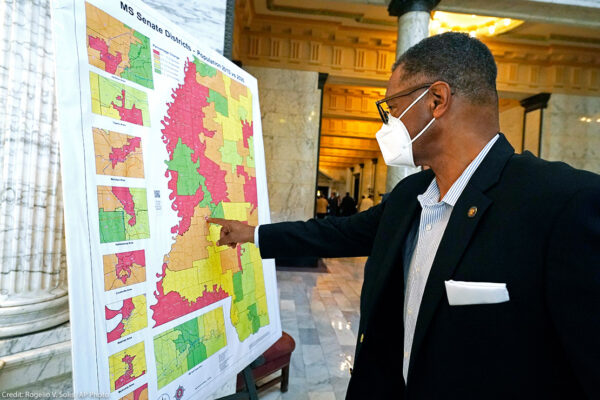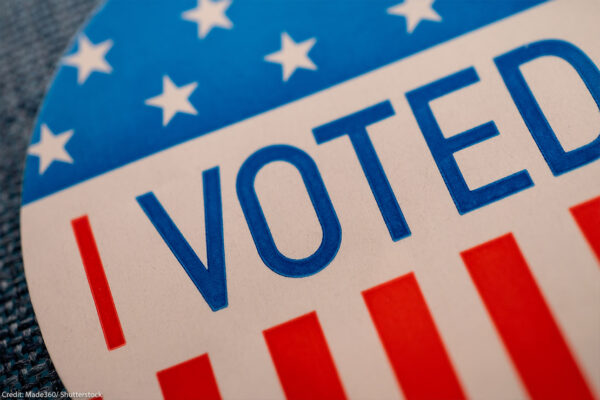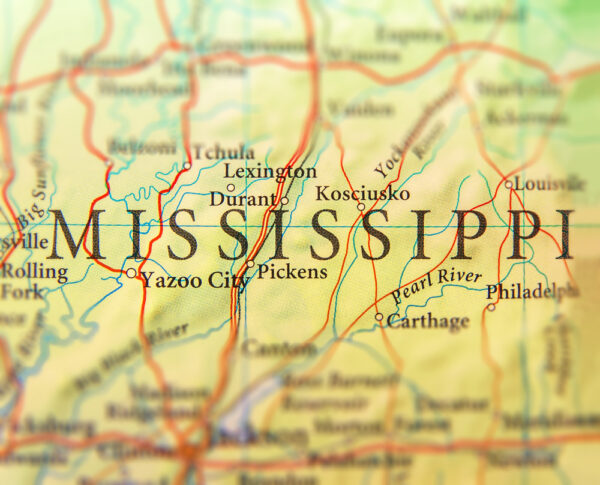Supreme Court Term 2025-2026
We’re breaking down the cases we've asked the court to consider this term.
Latest Case Updates
Ongoing
Updated November 5, 2025
Ongoing
Updated November 4, 2025
Ongoing
Updated October 21, 2025
Ongoing
Updated October 17, 2025
Featured
U.S. Supreme Court
Nov 2025

Voting Rights
Racial Justice
Allen v. Milligan
Whether Alabama’s congressional districts violate Section 2 of the Voting Rights Act because they discriminate against Black voters. We succeeded in winning a new map for 2024 elections which, for the first time, has two congressional district that provide Black voters a fair opportunity to elect candidates of their choosing despite multiple attempts by Alabama to stop us at the Supreme Court. Despite this win, Alabama is still defending its discriminatory map, and a trial was held in February 2025 to determine the map for the rest of the decade.
In May 2025, a federal court ruled that Alabama's 2023 congressional map both violates Section 2 of the Voting Rights Act and was enacted by the Alabama Legislature with racially discriminatory intent.
Washington, D.C.
Oct 2025

Voting Rights
League of Women Voters Education Fund v. Trump
On March 25, 2025, in a sweeping and unprecedented Executive Order, President Trump attempted to usurp the power to regulate federal elections from Congress and the States. Among other things, the Executive Order directs the Election Assistance Commission‚ÄĒan agency that Congress specifically established to be bipartisan and independent‚ÄĒto require voters to show a passport or other citizenship documentation in order to register to vote in federal elections. If implemented, the Executive Order would threaten the ability of millions of eligible Americans to register and vote and upend the administration of federal elections.
On behalf of leading voter registration organizations and advocacy organizations, the ļž–” ”∆Ķ and co-counsel filed a lawsuit to block the Executive Order as an unconstitutional power grab.
U.S. Supreme Court
Oct 2025

Voting Rights
State Board of Election Commissioners v. Mississippi State Conference of the NAACP
Mississippi has a growing Black population, which is already the largest Black population percentage of any state in the country. Yet. Black Mississippians continue to be significantly under-represented in the state legislature, as Mississippi’s latest districting maps fail to reflect the reality of the state’s changing demographics. During the 2022 redistricting process, the Mississippi legislature refused to create any new districts where Black voters have a chance to elect their preferred representative. The current district lines therefore dilute the voting power of Black Mississippians and continue to deprive them of political representation that is responsive to their needs and concerns, including severe disparities in education and healthcare.
U.S. Supreme Court
Oct 2025

Voting Rights
Louisiana v. Callais (Callais v. Landry)
Whether the congressional map Louisiana adopted to cure a Voting Rights Act violation in Robinson v. Ardoin is itself unlawful as a gerrymander.
Missouri
Sep 2025

Voting Rights
Wise v. Missouri
In unprecedented fashion, the State of Missouri has redrawn the district lines used for electing members of Congress for a second time this decade. These new district lines are gerrymandered and will harm political representation for all Missourians, particularly Black residents in Kansas City, who have been divided along racial lines.
Mississippi
Aug 2025

Voting Rights
White v. Mississippi State Board of Elections
District lines used to elect Mississippi’s Supreme Court have gone unchanged for more than 35 years. We’re suing because this dilutes the voting strength of Black residents in state Supreme Court elections, in violation of the Voting Rights Act and the U.S. Constitution.
Louisiana
Aug 2025

Voting Rights
Nairne v. Landry
Nairne v. Landry poses a challenge under Section 2 of the Voting Rights Act of 1965 to Louisiana’s House and Senate legislative maps on behalf of plaintiff Black voters and Black voters across the state.
Ohio
Jul 2025

Reproductive Freedom
Planned Parenthood Southwest Ohio Region et al., v. Ohio Department of Health, et al.
The ļž–” ”∆Ķ, the ļž–” ”∆Ķ of Ohio, Planned Parenthood Federation of America, the law firm WilmerHale, and Fanon Rucker of the Cochran Law Firm, on behalf of Planned Parenthood Southwest Ohio Region, Planned Parenthood of Greater Ohio, Preterm-Cleveland, Women‚Äôs Med Group Professional Corporation, Dr. Sharon Liner, and Julia Quinn, MSN, BSN, amended a complaint in an existing lawsuit against a ban on telehealth medication abortion services to bring new claims under the Ohio Reproductive Freedom Amendment, including additional challenges to other laws in Ohio that restrict access to medication abortion in the state.
U.S. Supreme Court
Apr 2024

Reproductive Freedom
Idaho and Moyle, et al. v. United States
Idaho and Moyle, et al. v. United States was appealed to the U.S. Supreme Court by Idaho politicians seeking to disregard a federal statute ‚ÄĒ the Emergency Medical Treatment and Labor Act (EMTALA) ‚ÄĒ and put doctors in jail for providing pregnant patients necessary emergency medical care. The Supreme Court heard oral arguments on this case on April 24, 2024. The Court‚Äôs ultimate decision will impact access to this essential care across the country.
All Cases
1,624 Court Cases

Nevada Supreme Court
Nov 2023
Criminal Law Reform
Smart Justice
Cannabis Equity & Inclusion Community v. Nevada Board of Pharmacy
Nevadans, like voters in many states, have chosen to legalize marijuana for medicinal and recreational use. In Nevada, these changes‚ÄĒadopted through citizen ballot initiatives and, in the case of medical marijuana, enshrined in the Nevada Constitution‚ÄĒwere intended to ensure that marijuana is regulated much like alcohol and that law enforcement resources are focused on violent crime, not the prosecution of non-violent drug offenses. Despite these legal changes, Nevada‚Äôs Board of Pharmacy continues to regulate marijuana as a Schedule I controlled substance for purposes of state law, akin to the Board‚Äôs treatment of cocaine and fentanyl. The Board‚Äôs scheduling designation for marijuana has enormous implications for criminal defendants in Nevada since state law makes it a felony to possess or engage in certain other activity with respect to a Schedule I controlled substance, as designated by the Board.
This case, brought by an individual and organization harmed by the Board‚Äôs scheduling designation for marijuana, involves the question whether the designation violates the Nevada Constitution and state statutes. The ļž–” ”∆Ķ of Nevada is counsel in the case, and the ļž–” ”∆Ķ‚Äôs State Supreme Court Initiative is co-counsel on appeal.
In August 2024, the Court held that Pool and CEIC lack standing to challenge marijuana's designation as a Schedule I substance but recognized that other individuals could appropriately do so in the future. The Court did not reach the merits in reversing the district court’s positive decision.
Explore case
Nevada Supreme Court
Nov 2023

Criminal Law Reform
Smart Justice
Cannabis Equity & Inclusion Community v. Nevada Board of Pharmacy
Nevadans, like voters in many states, have chosen to legalize marijuana for medicinal and recreational use. In Nevada, these changes‚ÄĒadopted through citizen ballot initiatives and, in the case of medical marijuana, enshrined in the Nevada Constitution‚ÄĒwere intended to ensure that marijuana is regulated much like alcohol and that law enforcement resources are focused on violent crime, not the prosecution of non-violent drug offenses. Despite these legal changes, Nevada‚Äôs Board of Pharmacy continues to regulate marijuana as a Schedule I controlled substance for purposes of state law, akin to the Board‚Äôs treatment of cocaine and fentanyl. The Board‚Äôs scheduling designation for marijuana has enormous implications for criminal defendants in Nevada since state law makes it a felony to possess or engage in certain other activity with respect to a Schedule I controlled substance, as designated by the Board.
This case, brought by an individual and organization harmed by the Board‚Äôs scheduling designation for marijuana, involves the question whether the designation violates the Nevada Constitution and state statutes. The ļž–” ”∆Ķ of Nevada is counsel in the case, and the ļž–” ”∆Ķ‚Äôs State Supreme Court Initiative is co-counsel on appeal.
In August 2024, the Court held that Pool and CEIC lack standing to challenge marijuana's designation as a Schedule I substance but recognized that other individuals could appropriately do so in the future. The Court did not reach the merits in reversing the district court’s positive decision.

Utah Supreme Court
Nov 2023
Prisoners' Rights
Natalie R. v. State of Utah
In recent years, federal courts have relied on what‚Äôs called the ‚Äúpolitical question doctrine‚ÄĚ to refuse to review legal claims of wrongdoing, even those involving egregious constitutional harm. Using the political question doctrine, federal courts have turned away claims from people seeking justice on the theory that court review of those claims would embroil the courts in matters best left to the political process. Whether state courts should adopt a parallel political question doctrine‚ÄĒand thus limit access to justice for people whose civil rights and liberties have been violated‚ÄĒis an open question in many states. This case involves the scope of Utah courts‚Äô authority to review important constitutional claims.
Explore case
Utah Supreme Court
Nov 2023

Prisoners' Rights
Natalie R. v. State of Utah
In recent years, federal courts have relied on what‚Äôs called the ‚Äúpolitical question doctrine‚ÄĚ to refuse to review legal claims of wrongdoing, even those involving egregious constitutional harm. Using the political question doctrine, federal courts have turned away claims from people seeking justice on the theory that court review of those claims would embroil the courts in matters best left to the political process. Whether state courts should adopt a parallel political question doctrine‚ÄĒand thus limit access to justice for people whose civil rights and liberties have been violated‚ÄĒis an open question in many states. This case involves the scope of Utah courts‚Äô authority to review important constitutional claims.

Maine Supreme Court
Nov 2023
Free Speech
State v. Labbe
This free-speech case concerns a prosecution for ‚Äústalking‚ÄĚ based on evidence of a defendant‚Äôs speech alone, without any requirement of subjective intent. Freedom of speech is a bedrock protection of both the Maine Constitution and the United States Constitution. This protection requires, at minimum, that a criminal defendant cannot be prosecuted for stalking carried out via speech alone unless the state proves a subjective-intent element beyond a reasonable doubt. This protection ensures that states do not prosecute and punish people for their protected speech. In October 2023, the ļž–” ”∆Ķ and the ļž–” ”∆Ķ of Maine filed an amicus brief in the Supreme Judicial Court of Maine, asking the court to vacate a defendant‚Äôs stalking conviction that was based on his speech alone, without any evidence as to subjective intent.
Explore case
Maine Supreme Court
Nov 2023

Free Speech
State v. Labbe
This free-speech case concerns a prosecution for ‚Äústalking‚ÄĚ based on evidence of a defendant‚Äôs speech alone, without any requirement of subjective intent. Freedom of speech is a bedrock protection of both the Maine Constitution and the United States Constitution. This protection requires, at minimum, that a criminal defendant cannot be prosecuted for stalking carried out via speech alone unless the state proves a subjective-intent element beyond a reasonable doubt. This protection ensures that states do not prosecute and punish people for their protected speech. In October 2023, the ļž–” ”∆Ķ and the ļž–” ”∆Ķ of Maine filed an amicus brief in the Supreme Judicial Court of Maine, asking the court to vacate a defendant‚Äôs stalking conviction that was based on his speech alone, without any evidence as to subjective intent.

Colorado
Nov 2023
Racial Justice
Criminal Law Reform
Sellers v. People
In September 2023, the ļž–” ”∆Ķ, the ļž–” ”∆Ķ of Colorado, The Boston University Center for Antiracist Research, the law firm Mintz Levin, and other partners filed an amicus brief with the Colorado Supreme Court arguing that mandatory life-without-parole (LWOP) sentences for strict liability felony murder are ‚Äúcruel and unusual‚ÄĚ in violation of the Colorado and U.S. Constitutions. The brief focuses on how these mandatory LWOP sentences drive racial injustice.
Explore case
Colorado
Nov 2023

Racial Justice
Criminal Law Reform
Sellers v. People
In September 2023, the ļž–” ”∆Ķ, the ļž–” ”∆Ķ of Colorado, The Boston University Center for Antiracist Research, the law firm Mintz Levin, and other partners filed an amicus brief with the Colorado Supreme Court arguing that mandatory life-without-parole (LWOP) sentences for strict liability felony murder are ‚Äúcruel and unusual‚ÄĚ in violation of the Colorado and U.S. Constitutions. The brief focuses on how these mandatory LWOP sentences drive racial injustice.

Florida
Nov 2023
Free Speech
+2 Issues
Students for Justice in Palestine at the University of Florida v. Raymond Rodrigues
The University of Florida chapter of Students for Justice in Palestine filed a lawsuit on November 16, 2023, challenging the Chancellor of the State University System of Florida‚Äôs order to state universities to deactivate the student group. This order threatens the students‚Äô constitutionally-protected right to free speech and association in violation of the First Amendment. The ļž–” ”∆Ķ and its partners are seeking a preliminary injunction that would bar the Chancellor and the University of Florida from deactivating the UF SJP.
Explore case
Florida
Nov 2023

Free Speech
+2 Issues
Students for Justice in Palestine at the University of Florida v. Raymond Rodrigues
The University of Florida chapter of Students for Justice in Palestine filed a lawsuit on November 16, 2023, challenging the Chancellor of the State University System of Florida‚Äôs order to state universities to deactivate the student group. This order threatens the students‚Äô constitutionally-protected right to free speech and association in violation of the First Amendment. The ļž–” ”∆Ķ and its partners are seeking a preliminary injunction that would bar the Chancellor and the University of Florida from deactivating the UF SJP.
